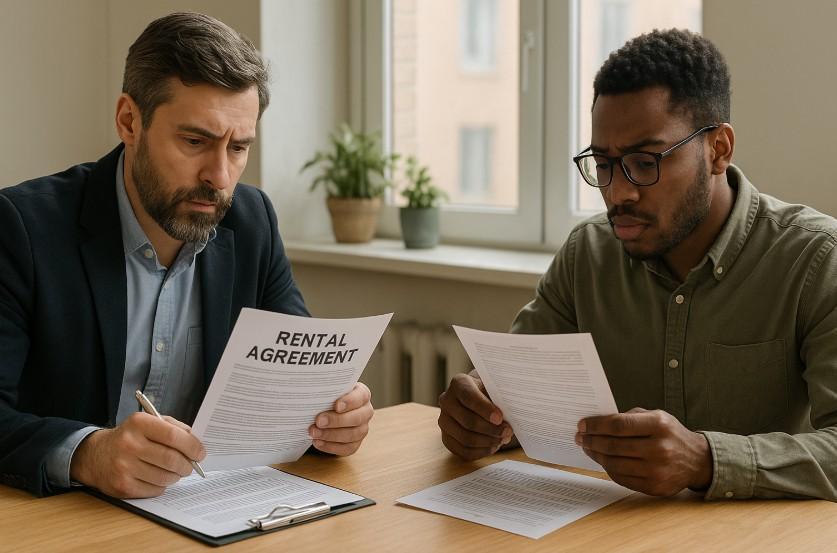If you’ve ever rented or let out a property in the UK, you’ve likely wondered: Who pays council tax, tenant or landlord? It’s a simple question on the surface, but with multiple answers depending on your living situation. Council Tax is a recurring cost that can catch people off guard, especially if they don’t understand the rules around liability.
The confusion often arises when different tenancy types or living arrangements come into play, such as shared housing, empty properties, or houses in multiple occupation (HMOs).
Whether you’re a tenant trying to budget your monthly expenses or a landlord managing multiple properties, knowing when you are liable for council tax is essential.
In this guide, you’ll discover how council tax works, who pays it under which circumstances, and what exemptions or discounts may apply to your unique setup.
What Is Council Tax and Why Do You Pay It?
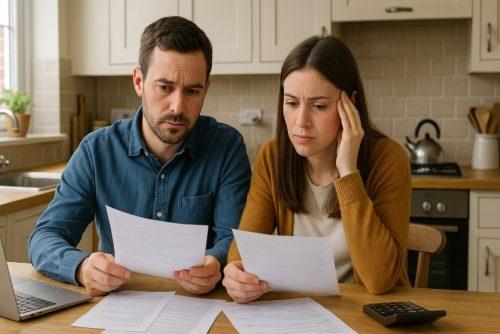
Council Tax is a local property tax collected by local authorities in England, Scotland, and Wales. It helps fund essential public services in your area, including rubbish collection, education, social care, and street lighting.
Introduced in 1993, Council Tax replaced the infamous Poll Tax and has been a consistent source of income for councils since. Most residential properties are subject to this tax, and the amount you pay depends on the property’s valuation band, set by the Valuation Office Agency (VOA) based on property values from 1991.
Council Tax is calculated based on:
- The valuation band of your property (from A to H in England and Wales)
- The number of adult occupants
- Any discounts or exemptions that may apply
The bill is usually calculated assuming two adults live in the property. If only one adult resides there, a 25% single person discount applies. People considered “disregarded” (like full-time students or those under 18) may also reduce your bill.
Your local authority sets the actual rates for each band, meaning the cost of Council Tax can vary across regions. The average collection rate across the UK is over 97%, making it one of the most effectively enforced taxes.
In essence, Council Tax exists to support local governance and infrastructure. Whether you rent or own, it is vital to understand when you’re responsible for paying it, which we’ll explore next.
How Is Council Tax Responsibility Decided?
Knowing who is responsible for paying Council Tax depends on something called the hierarchy of liability. This is a legally defined list used to determine who pays, starting from the top and working down until someone matches the criteria.
The hierarchy is as follows:
- A resident who owns the freehold of the property (owner-occupier)
- A resident who holds the leasehold
- A resident tenant under a rental agreement
- A resident licensee (someone with permission to stay but not a tenant)
- Any other resident (e.g. a squatter)
- The non-resident owner (when no one lives in the property)
Whoever appears first on this list and lives in the property is responsible for the Council Tax. If there are multiple people on the same level, for example, joint tenants, they are jointly and severally liable, meaning each person can be pursued for the full amount if needed.
Joint liability also applies to:
- Married or cohabiting couples
- Civil partners
- Joint owners of the same interest in a property
- Residents sharing moorings or pitches
Landlords become responsible only when no qualifying resident is present, or in cases where specific rules apply, which we’ll cover in detail later. Understanding this hierarchy helps ensure both tenants and landlords know their responsibilities and avoid unexpected bills.
When Do Tenants Pay Council Tax?
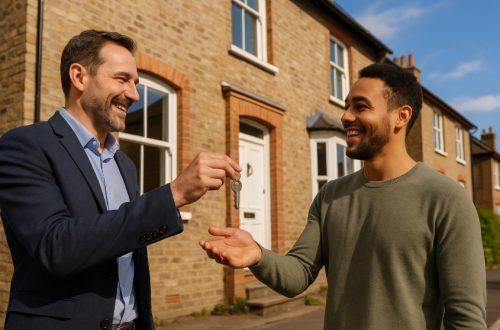
In most rental situations, you, as the tenant, are responsible for paying Council Tax. This is especially true if you rent a property on a single tenancy agreement, either as an individual, a couple, or a group of joint tenants.
Here’s when you, the tenant, will typically pay:
- You rent the entire property under one agreement
- You are over 18 and live in the property as your main residence
- Your name is on the tenancy agreement
In these scenarios, the council will issue the bill directly to you or your co-tenants. Even if only one name is on the Council Tax bill, all joint tenants may still be equally responsible.
Some landlords include Council Tax in your monthly rent, but this should be clearly stated in the tenancy agreement. Otherwise, the legal responsibility falls on you.
It’s also your duty to inform your local council when:
- You move in or out
- You are living alone and qualify for a discount
- Your household changes in any way
When renting under normal conditions, tenants are generally first in the liability chain, making them the ones who pay Council Tax.
When Do Landlords Pay Council Tax?
While tenants usually cover Council Tax, landlords can be held liable in specific scenarios, especially when tenants do not meet criteria in the liability hierarchy. Below are the main cases where you, as a landlord, are expected to pay.
Property is a House in Multiple Occupation (HMO)
If your property is a HMO, where tenants rent individual rooms under separate agreements and share facilities like kitchens or bathrooms, you are responsible for the Council Tax. This is because tenants in HMOs are not jointly responsible for the whole property.
Examples include:
- Bedsits with shared kitchen/bathroom
- Student homes with separate tenancy agreements
- Hostels or multi-room lets
Property is Empty Between Tenancies
When a tenant moves out and the property becomes vacant, you, the landlord, become liable.
This applies during:
- Gaps between tenants
- Refurbishment periods
- Unexpected vacancies
You may qualify for discounts or exemptions during this time, but the liability remains yours.
Landlord Lives in the Same Property with Tenants
If you live in the same property as your tenants, such as in a live-in landlord arrangement, you are typically the one responsible for paying Council Tax, even if they pay rent.
Care Homes, Monasteries, and Special-Use Properties
Some types of dwellings automatically place responsibility on the owner rather than the residents.
These include:
- Residential care or nursing homes
- Religious communities (monasteries, convents)
- Hostels or accommodation with high-level support
- Properties housing asylum seekers
These exceptions are recognised under legislation, and the council will expect the landlord or organisation to pay. As a landlord, you should always confirm your liability during void periods or if your property meets any of the special criteria listed.
What Happens If No One Lives in the Property?
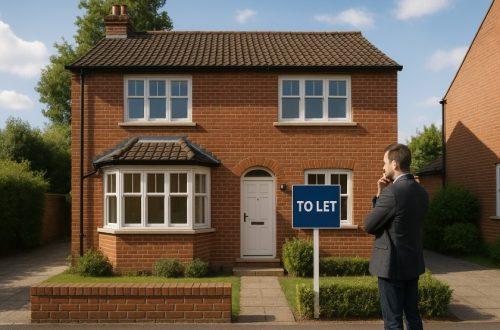
If a property is unoccupied, the person responsible for paying Council Tax changes. In this case, you, as the landlord (non-resident owner) are typically liable.
This applies in several situations:
- Property is awaiting new tenants
- The property is under refurbishment or repairs
- The property is on the market but not yet let
- Former tenants have moved out unexpectedly
Although liability falls to you, some councils offer discounts or temporary exemptions based on how long the property is empty and the reason behind the vacancy.
For example:
- Empty and unfurnished properties may get a short-term exemption
- Second homes may be charged extra (a premium)
- Properties undergoing major structural work could qualify for longer relief
To avoid overpaying, it’s wise to notify the council as soon as the property becomes empty. Always check what exemptions or reductions apply in your borough.
Ultimately, if no resident matches the hierarchy of liability, the non-resident owner takes on the responsibility for Council Tax until someone new moves in.
Are There Any Council Tax Exemptions?
Yes, certain situations or property types qualify for full exemptions from Council Tax, meaning no bill is due. These exemptions depend on either who lives in the property or its current condition or use.
Here are some common exemption scenarios:
- All occupants are under 18 years old
- The property is occupied solely by full-time students
- The property is a care home, hospital, or refuge
- The residents are asylum seekers
- The property is unoccupied due to the owner being in hospital, a care home, or deceased
- Property is used by religious communities (e.g. monasteries)
A few key points to remember:
- Exemptions must usually be applied for, they are not automatically granted
- You’ll need to provide evidence, such as student certificates or hospital letters
- You should inform the local council promptly if your situation changes
If your property fits any of these conditions, it may be completely exempt from Council Tax for a limited time or indefinitely, depending on the case.
Can You Get a Discount on Council Tax?
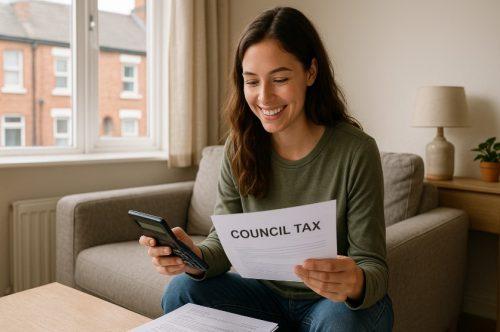
Yes, even if you don’t qualify for a full exemption, you might still be eligible for a Council Tax discount, depending on your household and personal circumstances.
Common discount types include:
- Single person discount (25%): If only one adult lives in the property
- Student discount (100%): If all occupants are full-time students
- Low income discount: Means-tested and based on your financial situation
- Disabled reduction: If adaptations have been made to support a disabled resident
- Disregarded people: Certain individuals are not counted when calculating Council Tax (e.g. carers, under 18s, apprentices)
Here’s a quick reference table:
| Situation | Eligible Discount | Who Applies |
| Lives alone | 25% | Tenant |
| All adult residents are full-time students | 100% | Tenant |
| Low income or benefits | Variable | Tenant |
| Disabled adaptations present | Band reduction | Tenant |
| Unfurnished empty property | Up to 100% | Landlord |
To apply, contact your local council and provide the necessary documents. Failing to notify changes could mean you miss out on significant savings. Even a small reduction can make a difference, especially with rising costs of living.
What If You Disagree With a Council Tax Bill?
If you believe your Council Tax bill is incorrect, whether it’s about who should pay, the amount charged, or your property banding, you have the right to dispute the decision.
Here’s how to raise a disagreement:
- Contact your local council in writing
- Clearly explain your reason for the dispute
- Include supporting evidence, such as tenancy agreements or student letters
- Keep copies of everything you send
Common reasons to challenge a bill include:
- You’ve moved out but are still being billed
- You’re not the liable party under the hierarchy of responsibility
- You’re eligible for a discount or exemption but it hasn’t been applied
- The property is wrongly classified as a HMO
While your appeal is ongoing, you must still pay the billed amount. This is a legal requirement to avoid penalties or legal action. Some people believe they are not legally required to pay Council Tax by claiming to be a “freeman of the land,” but this argument has no legal standing.
Council Tax is based on UK law, not personal consent. If the council rejects your appeal, you can take it to the Valuation Tribunal, which makes independent decisions.
Conclusion
Understanding who pays Council Tax, tenant or landlord, depends entirely on your living arrangement, tenancy type, and whether the property is occupied.
As a tenant, you’re usually responsible, particularly if you rent the entire property under a single agreement. However, landlords step in when properties are empty, part of a HMO, or used for special purposes.
Being informed helps you avoid unexpected costs, disputes with the council, or confusion with your landlord or tenants. Always check your tenancy agreement and communicate any changes to your local authority promptly.
Whether you’re moving in, renting out, or managing a shared house, knowing your Council Tax responsibility ensures peace of mind, and fewer surprises when the next bill lands.
FAQs
Do tenants always pay Council Tax?
No, tenants usually pay, but not always. Landlords pay in cases like HMOs or when a property is empty.
Who is responsible for Council Tax in a HMO?
In HMOs, the landlord is usually liable. This is because tenants rent individual rooms, not the whole property.
Can landlords include Council Tax in the rent?
Yes, landlords can include it in the rent. But it must be clearly stated in the tenancy agreement.
What happens if a property is empty?
If no one lives there, the landlord pays. Discounts may apply for unoccupied properties.
Are students exempt from Council Tax?
Yes, full-time students are exempt. All household members must be students for a full exemption.
Can I appeal my Council Tax bill?
Yes, you can appeal if the bill is incorrect. You must continue paying during the appeal process.
What if multiple people live in the property?
If they’re on the same tenancy level, they’re jointly liable. This means each person can be pursued for full payment.


